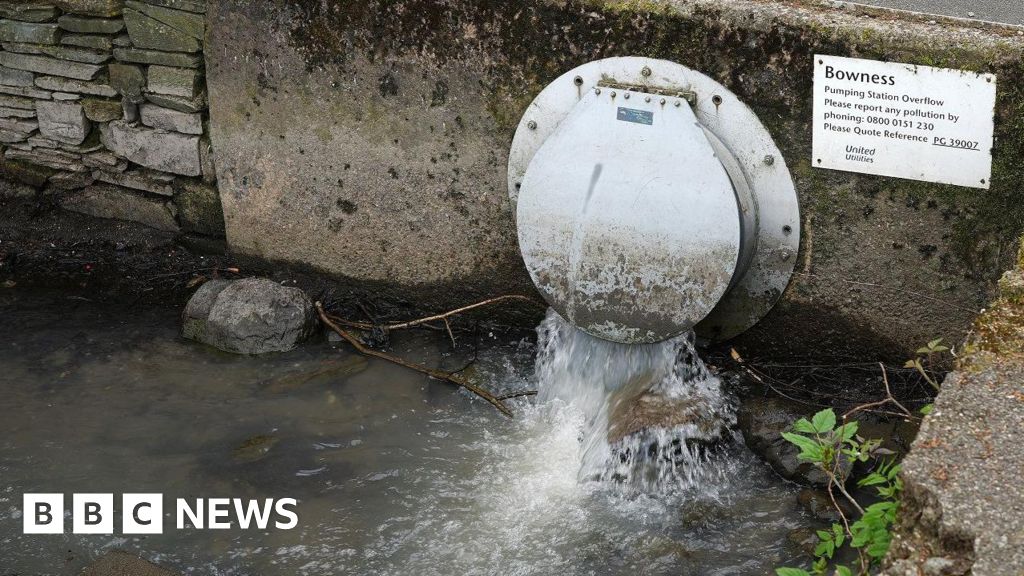All 11 water and wastewater companies in England and Wales are now under scrutiny over sewage spills, after the regulator said it was expanding its investigation.
On Tuesday, Ofwat opened enforcement cases into four more firms – Dŵr Cymru Welsh Water, Hafren Dyfrdwy, Severn Trent and United Utilities – as part of its probe into how companies manage their sewage treatment works and networks.
It began its investigation in 2021 and if found in breach the companies face being fined.
Ofwat chief executive David Black said the latest move showed “how concerned we are about the sector’s environmental performance”.
It comes a week after water firms hit back at Ofwat’s proposal of a £19-a-year rise in bills to tackle problems including sewage leaks, with the companies saying the increase would not be enough.
Water suppliers have faced increased scrutiny over their environmental and financial performance, as well as executive bonuses and pay.
In May, the BBC found that millions of litres of raw sewage were illegally pumped into one of England’s most famous lakes, Windermere in the Lake District, after a fault, and that United Utilities failed to stop what was found to be illegal pollution.
Every major English water company has reported data suggesting they have discharged raw sewage when the weather is dry – a practice which is potentially illegal.
Water companies can release untreated sewage into rivers and seas when it rains to prevent it flooding homes, but such spills are illegal when it is dry.
Announcing the four firms facing new enforcement action, Ofwat said its investigation had highlighted its “concerns that these companies may not be fulfilling their obligations to protect the environment and minimise pollution”.
The regulator already has enforcement cases against Anglian Water, Northumbrian Water, South West Water, Thames Water, Wessex Water and Yorkshire Water.
Southern Water also remains subject to enforcement monitoring following a previous case in 2019, Ofwat said. It was fined £90m in 2021 after pleading guilty to 6,971 “unpermitted sewage discharges”.
“Where we find that companies have breached their obligations, we will continue to act – over recent years, we have imposed penalties and payments of over £300m on water and wastewater companies,” said Mr Black.
United Utilities said in a statement: “We understand and share people’s concerns about the health of the environment and the operation of wastewater systems”.
A spokesperson for Hafren Dyfrdwy said the firm would “ensure that we will not be the reason for any unhealthy rivers in Wales by 2030” and would be “rapidly reducing” polluting spills.
Severn Trent said it recently announced a programme worth £1bn to reduce its impact on rivers to “almost zero by 2030”.
Dŵr Cymru said it “will not shy away from the challenges facing us”.
Last year, the Environment Agency said in its annual review that the number of serious pollution incidents was “unacceptably high”, and that water companies needed to go “further and faster”.

